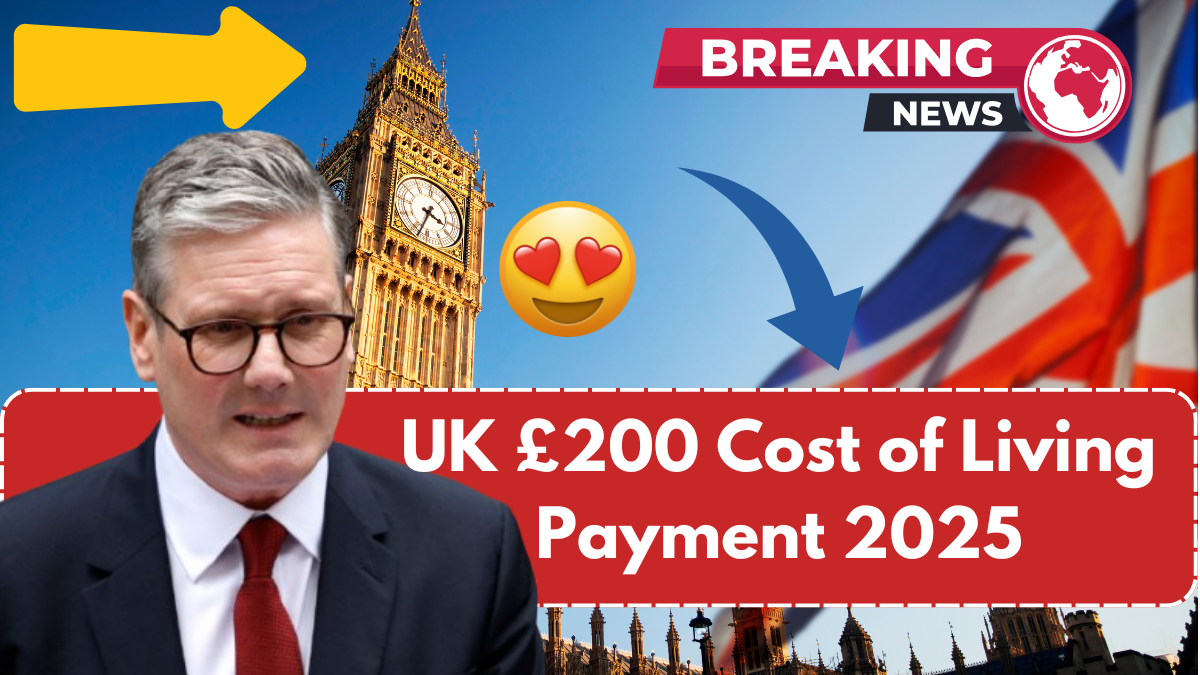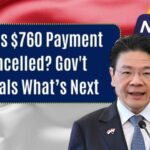UK Government’s £250 Cost of Living Payment in May 2025: Eligibility, Payment Dates & How to Claim
With the cost of everyday items rising across the UK, many families are feeling the pressure. From energy bills to food prices, things aren’t getting any cheaper. That’s why the UK government has announced a £250 Cost of Living Payment to help ease the burden. This new support payment will be rolled out in May 2025, targeting low-income households and those receiving certain benefits.
In this article, we’ll explain in simple terms who is eligible, when the payments will be made, and how to claim (if you even need to). If you’re wondering whether you qualify or how to make sure you don’t miss out, keep reading.
Overview Table: What You Need to Know
| Detail | Information |
|---|---|
| Payment Name | Cost of Living Payment – May 2025 |
| Amount | £250 |
| Payment Start Date | From 13 May 2025 |
| Who Is Eligible | People on certain low-income benefits |
| Claim Needed? | No, payment is automatic |
| How Paid | Direct to bank account (via benefits) |
| Type of Support | One-off tax-free payment |
| Purpose | To help with rising living costs |
Why Is There a New Cost of Living Payment?
Many households in the UK have been affected by the high cost of basic needs like heating, groceries, rent, and fuel. Inflation and other economic challenges have made it harder for people, especially those on benefits or low incomes, to keep up.
To offer some relief, the government is continuing its Cost of Living support scheme with another payment in May 2025. This one-off £250 payment is meant to help cover essential expenses during a difficult time.
It follows previous payments made in past years and continues to be part of the government’s plan to support vulnerable citizens.
Are You Eligible for the £250 Payment?
Not everyone will receive this payment. It’s designed to go to people who are already receiving certain income-related benefits or tax credits. Here’s a simple breakdown of who will get it:
You May Be Eligible If You Receive:
-
Universal Credit
-
Income-based Jobseeker’s Allowance (JSA)
-
Income-related Employment and Support Allowance (ESA)
-
Income Support
-
Working Tax Credit
-
Child Tax Credit
-
Pension Credit
To get the payment, you need to have been receiving one of these benefits during a qualifying period, which usually falls a few weeks before the payment date.
If you’re not sure whether your benefit qualifies, it’s best to check with your local Jobcentre or the DWP (Department for Work and Pensions).
How Will the £250 Be Paid?
Here’s some good news: you don’t need to apply for this Cost of Living Payment. If you’re eligible, the money will be paid automatically into the bank account where you receive your benefits.
There will be no forms to fill, no websites to visit, and no paperwork to send.
The government will send out messages (letters or texts) to let people know they’re getting the payment. Keep an eye on your usual benefit notifications or check your online benefit account.
Important: The payment will appear separately from your regular benefit, so it will be easy to spot.
When Will You Receive the Payment?
The government has said that payments will start being sent out from 13 May 2025. Not everyone will get it on the same day — it will happen in batches over a few weeks.
Most people should receive their money by the end of May 2025. If you haven’t received it by early June and think you qualify, you should contact the benefit office that handles your claim.
Common Questions and Concerns
There are a few things that might worry people about the payment. For example:
-
Will it affect your other benefits?
No. The £250 payment is separate and does not count as income, so it won’t affect your benefit amounts or eligibility. -
Is it taxed?
No. The payment is tax-free and won’t appear on your tax record. -
Can it be claimed more than once per household?
Only one payment is given per eligible individual. If more than one person in the household qualifies on their own (e.g., both adults are receiving a qualifying benefit), then both could receive it.
What to Do If You Don’t Get the Payment
If you believe you’re eligible but don’t receive the payment by early June 2025, here are some steps to take:
-
Check your bank account again – Look for a payment marked as “DWP COL” or something similar.
-
Check your benefit eligibility – Were you receiving one of the qualifying benefits during the set period?
-
Call or contact the DWP – They can tell you if a payment was issued or if there was an issue.
-
Avoid scams – Be careful. The government will not ask for your bank details or personal info via text or phone. If someone does, it’s a scam.
Frequently Asked Questions (FAQs)
1. Do I need to apply for the £250 payment?
No, it is paid automatically if you qualify. There is no need to fill out any forms.
2. What benefits qualify me for the payment?
Benefits like Universal Credit, Pension Credit, Income-based JSA, and others. Check if your benefit is on the eligible list.
3. What happens if I recently stopped receiving benefits?
If you were receiving a qualifying benefit during the set “qualifying period,” you may still get the payment even if you’ve stopped since.
4. Will this payment affect my taxes or other income support?
No, it is tax-free and does not affect other payments or benefits.
5. Can I get the payment if I live outside the UK?
Generally, you must be living in the UK to receive the payment, but exceptions may apply for certain benefit recipients.
Final Thoughts
The £250 Cost of Living Payment in May 2025 is a small but important step to help people manage through tough economic times. If you’re on low income or receiving qualifying benefits, this payment can help with daily essentials like groceries, bills, and other necessary expenses.
It’s automatic, simple, and safe. Just make sure your benefit details are up to date and keep an eye on your bank account during May.
A little help can go a long way—and for many in the UK, this support may arrive just when it’s needed most.













